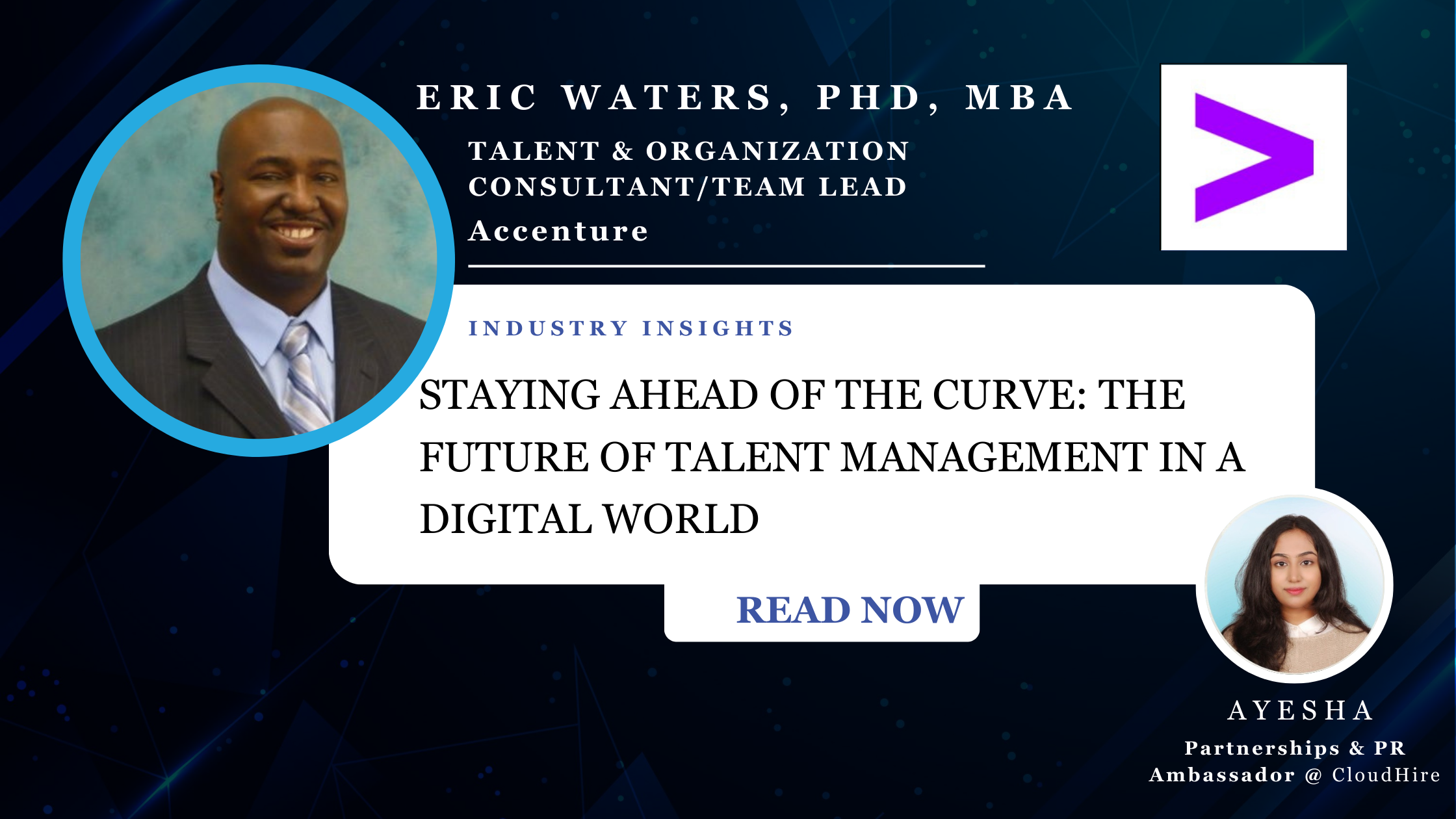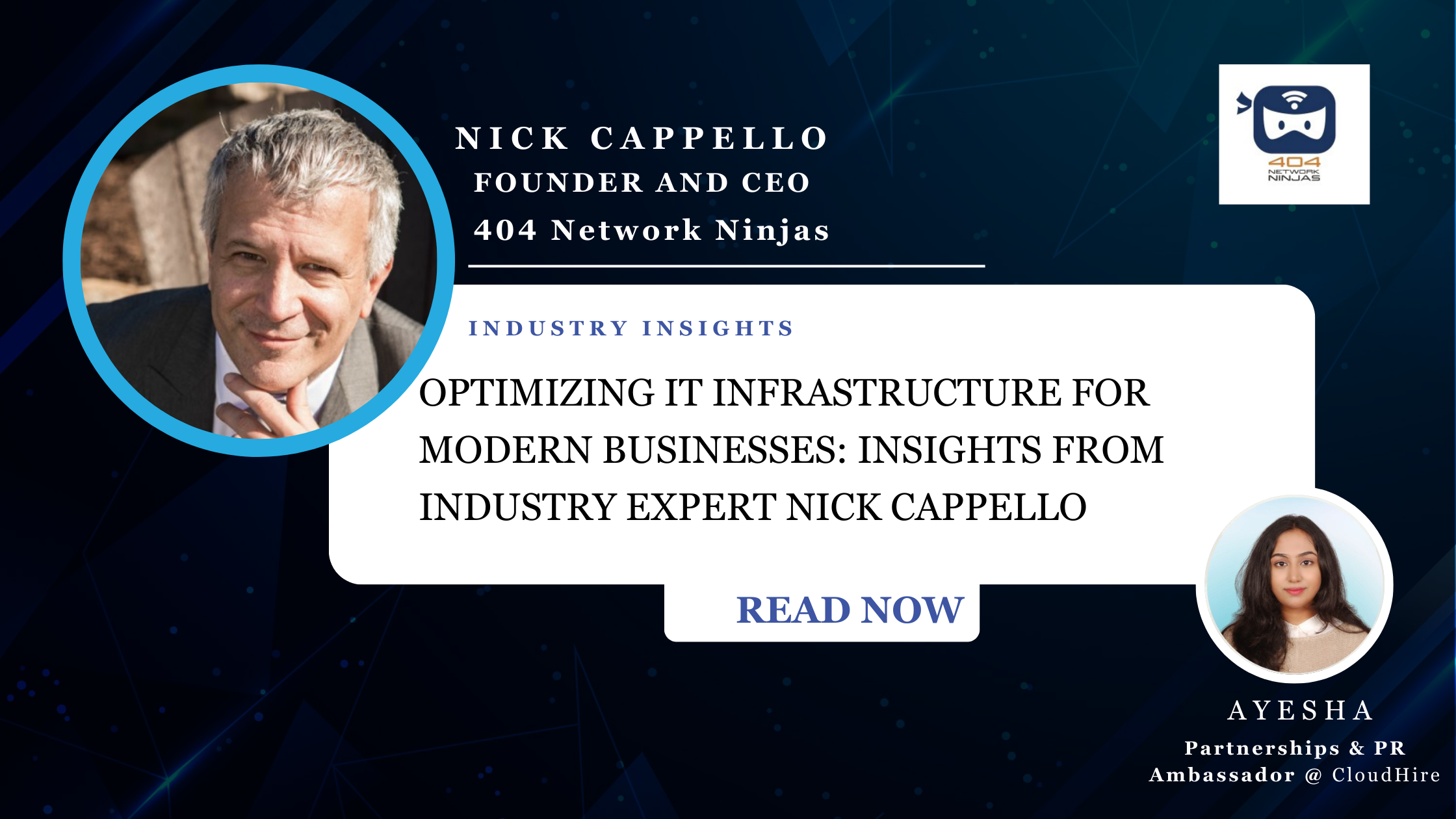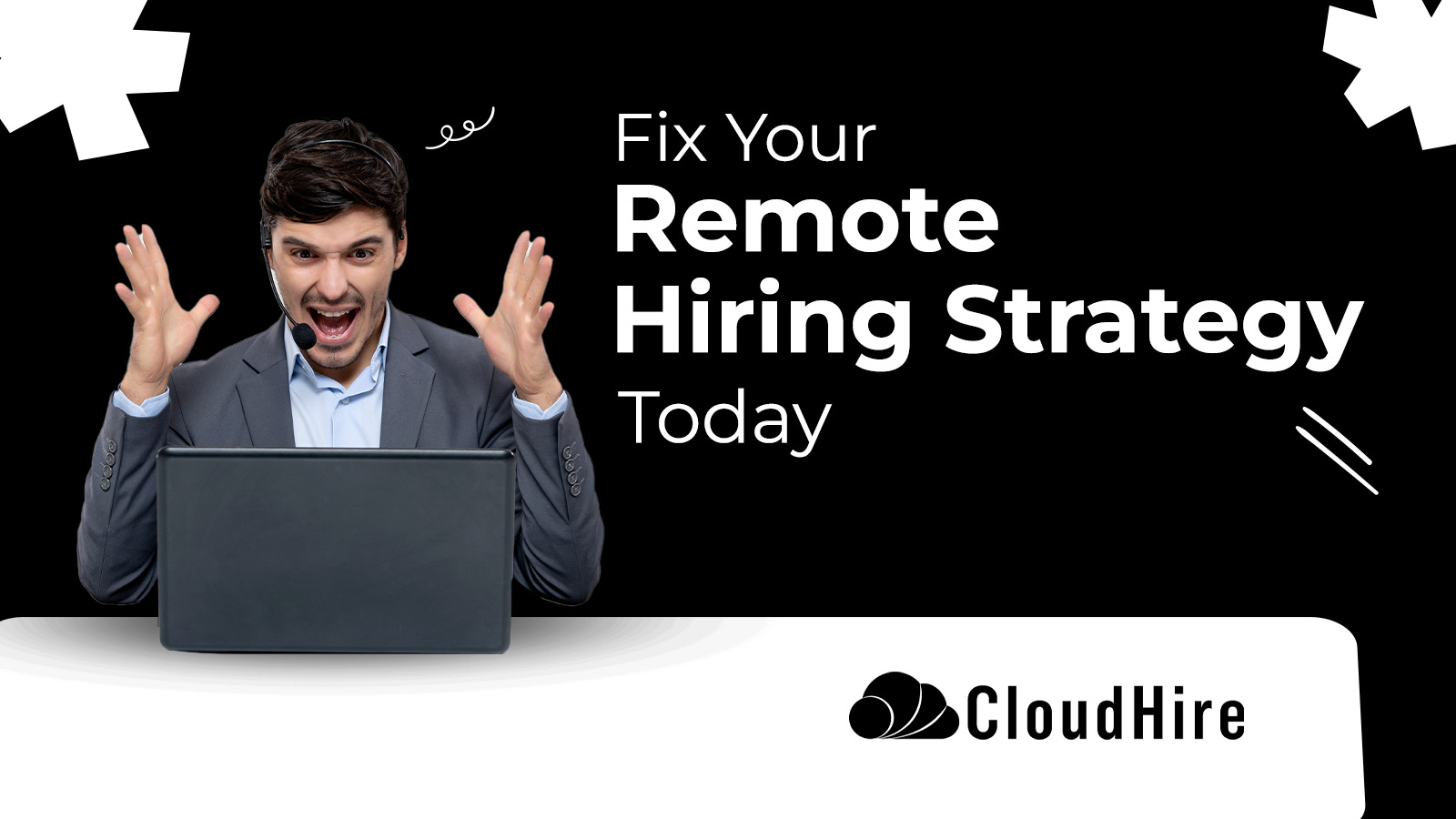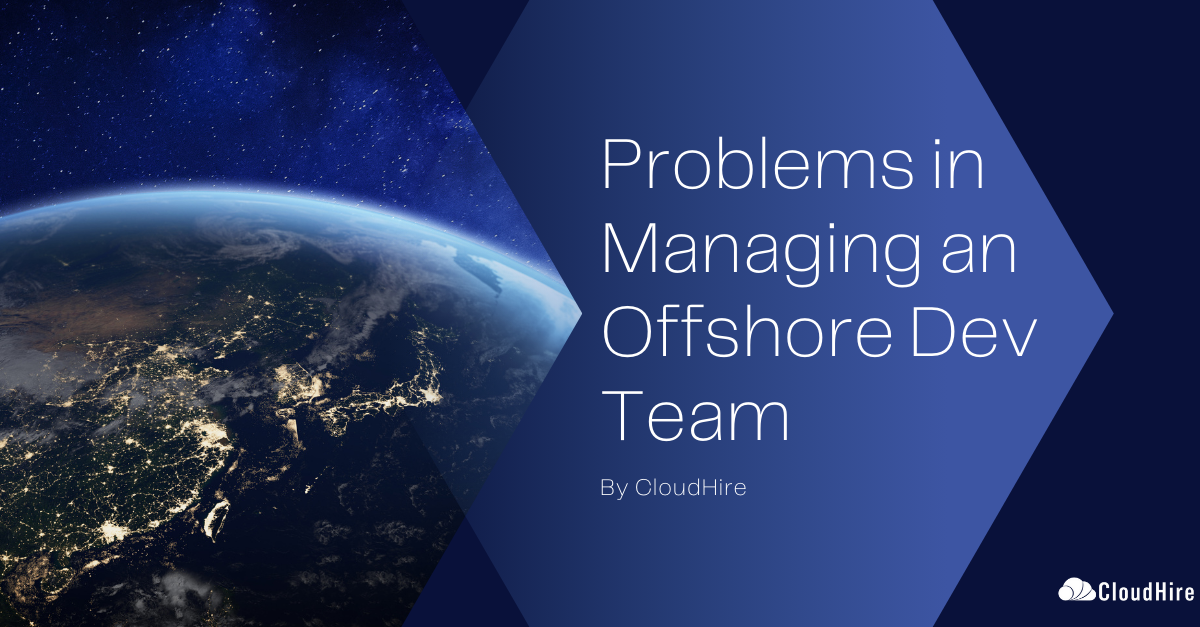In today’s rapidly evolving business landscape, organizations face unprecedented challenges in attracting, retaining, and developing top talent. As digital transformation sweeps across industries, companies must adapt their talent management strategies to stay competitive. This article explores key insights from Eric Waters, PhD, MBA, a Talent & Organization Consultant and Team Lead at Accenture, on how organizations can navigate these changes and position themselves for success.
The Bottom-Up Approach to Digital Transformation
One of the most critical aspects of successful digital transformation is adopting a bottom-up approach. Dr. Waters emphasizes that change should not be imposed from the top down but should involve employees at all levels of the organization. This approach ensures that the transformation aligns with the needs and expectations of those who will be most affected by it.
To implement a bottom-up approach effectively:
- Engage employees in the planning process: Involve staff from various departments and levels in discussions about the proposed changes. This engagement helps identify potential challenges and opportunities that leadership might overlook.
- Conduct listening sessions and focus groups: Regularly gather feedback from employees to understand their pain points, concerns, and ideas for improvement. This information is invaluable in shaping the transformation strategy.
- Empower change champions: Identify and support individuals within the organization who can advocate for the changes and help their colleagues adapt. These champions can provide peer-to-peer support and facilitate smoother adoption of new technologies and processes.
- Communicate transparently: Keep all stakeholders informed about the transformation process, including its goals, timeline, and expected outcomes. Open communication helps build trust and reduces resistance to change.
By involving employees in the digital transformation process, organizations can ensure that the changes are relevant, practical, and well-received. This approach also fosters a sense of ownership among employees, increasing the likelihood of successful adoption and long-term sustainability of the new technologies and processes.
The Role of HR Technology in Talent Management
As organizations strive to stay competitive in the digital age, investing in the right HR technology has become crucial. Dr. Waters highlights the importance of selecting and implementing HR tech stacks that align with the organization’s goals and employee needs.
Key considerations when choosing HR technology:
- User-friendliness: Ensure that the chosen technology is intuitive and easy to use. Complex systems that frustrate employees will likely be underutilized or avoided altogether.
- Integration capabilities: Look for solutions that can seamlessly integrate with existing systems and processes to avoid creating silos of information.
- Scalability: Choose technologies that can grow and adapt as the organization evolves.
- Data analytics: Opt for systems that provide robust analytics capabilities to help inform decision-making and track progress toward goals.
- Mobile accessibility: In an increasingly remote and hybrid work environment, mobile-friendly HR technologies are essential for maintaining productivity and engagement.
By investing in the right HR technology, organizations can streamline processes, improve employee experiences, and gain valuable insights into their workforce. This, in turn, can lead to better talent management decisions and improved overall organizational performance.
The Rise of Skills-Based Organizations
As the talent landscape continues to evolve, Dr. Waters predicts a shift towards skills-based organizations. This approach focuses on attracting and promoting employees based on their skills and competencies rather than solely on traditional credentials like degrees.
Factors that are driving this trend:
- Changing demographics: With fewer college graduates entering the workforce due to factors like rising education costs and declining enrollment, organizations need to broaden their talent pool.
- Rapid technological advancements: The pace of change in many industries means that formal education may not always keep up with the latest skills and knowledge required in the workplace.
- Increased focus on diversity and inclusion: Skills-based hiring can help organizations tap into a more diverse talent pool and reduce bias in the recruitment process.
- The need for agility: By focusing on skills rather than rigid job descriptions, organizations can more easily adapt to changing market demands and redeploy talent as needed.
To transition to a skills-based organization:
- Conduct a skills inventory: Use AI-enabled skills intelligence platforms to assess the current skills within your organization and identify gaps.
- Develop a skills taxonomy: Create a comprehensive list of skills relevant to your industry and organization, including both technical and human skills.
- Implement skills-based hiring practices: Revise job descriptions and recruitment processes to focus on specific skills and competencies rather than traditional qualifications.
- Invest in continuous learning: Provide opportunities for employees to upskill and reskill through robust learning and development programs.
- Foster a culture of skills sharing: Encourage knowledge transfer and mentoring within the organization to maximize the value of existing skills.
By adopting a skills-based approach, organizations can build a more agile and adaptable workforce better equipped to handle the challenges of the digital age.
The Impact of AI on Talent Management
Artificial Intelligence (AI) is revolutionizing various aspects of talent management, from recruitment to employee development. Dr. Waters highlights two key areas where AI is making significant impacts:
- Skills Intelligence: AI-powered platforms like Skyhive and Eightfold are helping organizations gain deeper insights into their workforce’s skills and the skills needed in their industry. These tools can:
– Identify skill gaps within the organization
– Suggest strategies for acquiring needed skills (e.g., hiring, training, or contract work)
– Provide real-time data on emerging skills in the market
– Assist in creating more targeted and effective talent development strategies
- Learning and Development: AI is enhancing the effectiveness of learning programs by:
– Personalizing learning experiences based on individual needs and preferences
– Creating immersive training scenarios using augmented and virtual reality
– Providing real-time feedback and performance analytics
– Identifying skill development opportunities aligned with organizational goals
Organizations that leverage AI in their talent management strategies can make more informed decisions, improve employee experiences, and stay ahead of rapidly changing skill requirements in their industries.
The Future of Work: Remote and Hybrid Models
The COVID-19 pandemic has accelerated the adoption of remote and hybrid work models, and Dr. Waters believes this trend will continue. Organizations that embrace these flexible work arrangements can reap several benefits:
- Access to a broader talent pool: By removing geographical constraints, companies can attract top talent from anywhere in the world.
- Increased employee satisfaction and retention: Many employees value the flexibility and work-life balance that remote or hybrid work offers.
- Cost savings: Reduced office space requirements can lead to significant cost reductions for organizations.
- Improved productivity: Many employees report higher productivity when working remotely, free from office distractions.
However, implementing successful remote or hybrid work models requires careful planning and the right tools:
- Invest in robust communication and collaboration technologies
- Develop clear remote work policies and expectations
- Provide training on effective remote work practices for both employees and managers
- Foster a strong company culture that transcends physical boundaries
- Implement regular check-ins and feedback mechanisms to maintain engagement
Organizations that successfully navigate the transition to remote or hybrid work models will be better positioned to attract and retain top talent in the competitive digital landscape.
The Importance of Human Skills in a Digital World
While technical skills are crucial in the digital age, Dr. Waters emphasizes the growing importance of human skills. These skills, sometimes referred to as “soft skills,” are essential for organizational success and cannot be easily replicated by technology. Key human skills include:
- Communication
- Leadership
- Conflict resolution
- Relationship building
- Time management
- Problem-solving
- Adaptability
- Emotional intelligence
Organizations should focus on developing these skills alongside technical competencies:
- Incorporate human skills training into learning and development programs
- Use AI-powered tools to create realistic scenarios for practicing these skills
- Encourage mentoring and coaching programs to transfer human skills and knowledge
- Recognize and reward employees who demonstrate strong human skills
- Include human skills assessments in hiring and promotion processes
By nurturing both technical and human skills, organizations can build a workforce that is not only digitally savvy but also adaptable, collaborative, and innovative.
Conclusion: Embracing Change for Future Success
As organizations navigate the complexities of talent management in the digital age, it’s clear that adaptability and a willingness to embrace change are crucial. By adopting a bottom-up approach to digital transformation, investing in the right HR technologies, focusing on skills-based talent management, leveraging AI, embracing flexible work models, and nurturing human skills, organizations can position themselves for long-term success.
In this rapidly evolving landscape, partnering with experienced talent management firms can provide valuable insights and support. Companies like CloudHire, a global remote staffing company specializing in talent search, Employer of Record (EOR) services, and remote staffing solutions, can help organizations navigate these changes and build high-performing teams across the globe. By leveraging external expertise alongside internal initiatives, organizations can stay ahead of the curve and thrive in the digital future of work.








